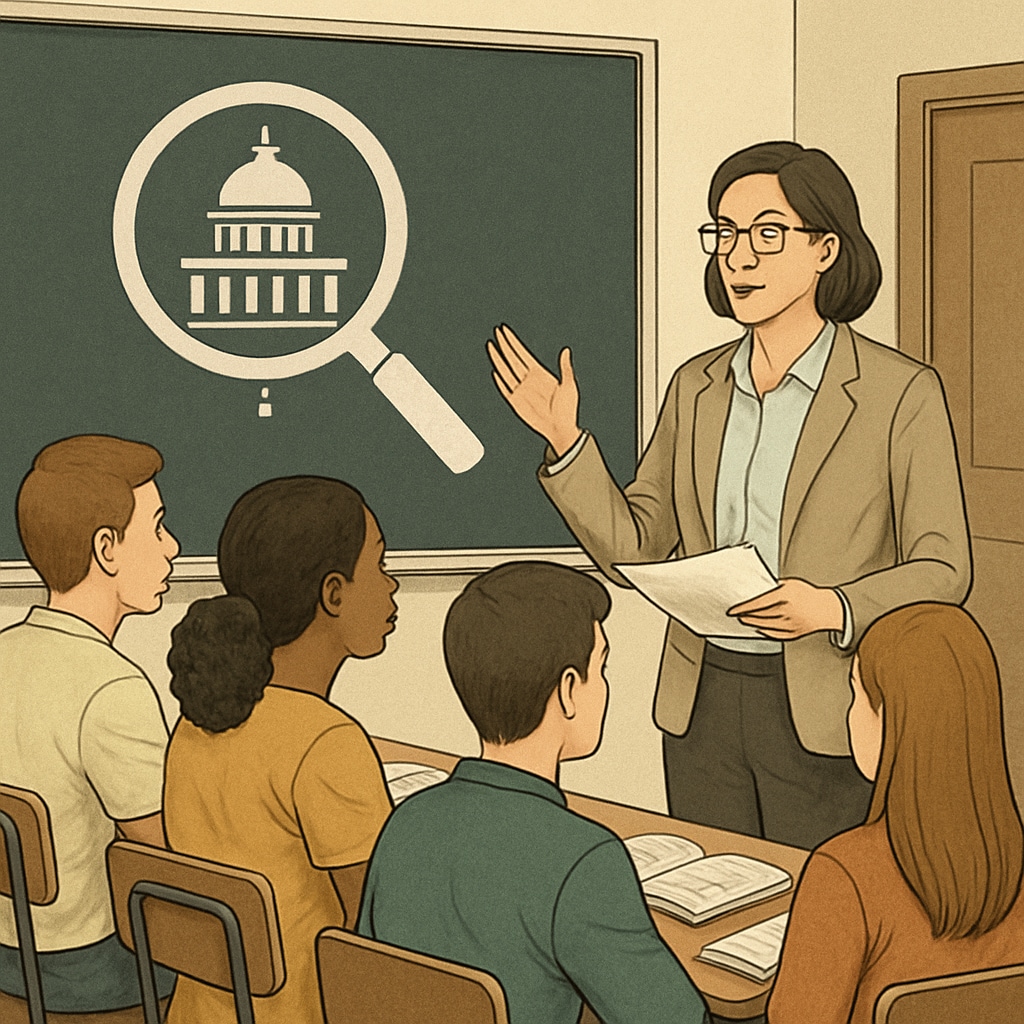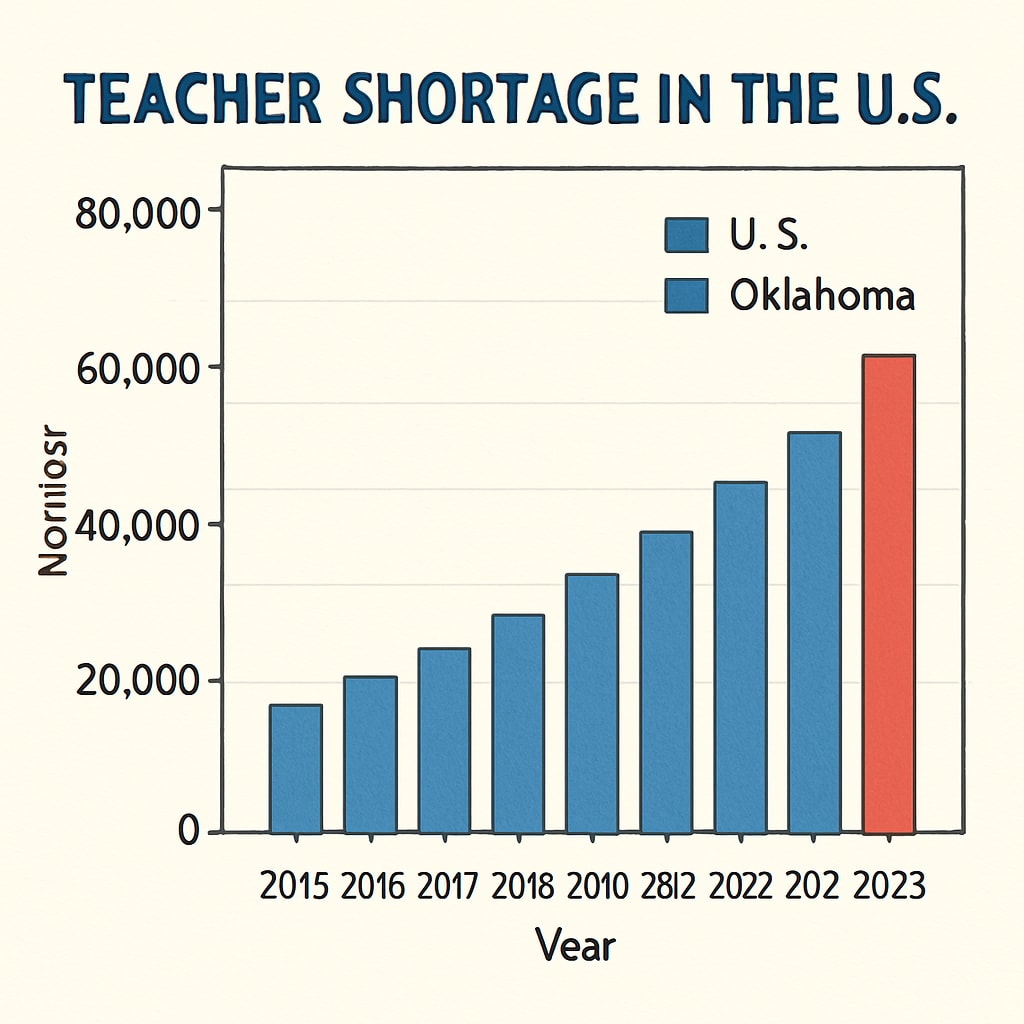Oklahoma’s recently implemented policy requiring out-of-state teacher applicants to undergo a political stance test has ignited widespread discourse surrounding academic freedom, education neutrality, and the increasing politicization of the K-12 education system. While supporters argue the policy aims to root out “radical ideologies” from classrooms, critics contend it risks infringing on educators’ rights and prioritizing politics over education quality. This article explores the motivations behind the policy, its potential implications, and the broader consequences of intertwining politics with education.

Understanding Oklahoma’s Political Stance Test for Teachers
The political stance test, introduced by Oklahoma’s education department, reportedly aims to prevent the spread of “radical ideologies” in schools. Applicants from outside the state are required to answer questions that assess their political beliefs, particularly around controversial topics such as social justice, race, gender, and American history. This policy aligns with broader efforts seen in other states to regulate how educators approach sensitive subjects.
Supporters of the policy argue that it ensures classrooms remain free from perceived political bias or activism. They believe teachers should focus on core educational content and refrain from promoting personal or political agendas. However, detractors question whether such a screening process infringes on educators’ constitutional rights, including freedom of speech and thought.
Academic freedom is a cornerstone of many education systems, allowing teachers to discuss complex issues without fear of censorship. Critics argue that Oklahoma’s policy could deter talented educators from applying, especially those who fear their beliefs might be misinterpreted or unfairly judged.
Implications for K-12 Education Quality
The intertwining of politics with education has far-reaching consequences for the learning environment in K-12 schools. Policies like Oklahoma’s political stance test may create a chilling effect, where educators avoid addressing important but contentious topics altogether. This could lead to a watered-down curriculum that fails to prepare students for critical thinking and civic engagement.
Furthermore, the policy risks alienating qualified teachers from diverse backgrounds who might bring valuable perspectives to the classroom. Diversity among educators is vital for fostering inclusive learning environments and helping students understand the complexities of the world around them.
As a result, the policy could contribute to a growing teacher shortage, a problem already exacerbated by factors such as low pay and challenging working conditions. According to Britannica’s overview of teaching, attracting and retaining quality educators is essential for maintaining high educational standards. Restrictive policies may only worsen this issue.

The Broader Debate: Politics vs. Education Neutrality
The controversy surrounding Oklahoma’s teacher screening policy highlights a broader debate about the role of politics in education. While it is essential to ensure classrooms remain spaces for unbiased learning, imposing political tests on educators risks prioritizing ideological conformity over teaching excellence.
Education neutrality—the idea that schools should neither promote nor suppress particular political ideologies—has long been a guiding principle. However, policies like Oklahoma’s political stance test suggest a shift toward politicized control over classroom discussions. This raises critical questions: should policymakers dictate what educators can or cannot say? And where should the line be drawn between upholding neutrality and censoring diverse viewpoints?
As states continue to grapple with these issues, it is vital to balance academic freedom with the need for respectful and inclusive learning environments. Open dialogue, rather than restrictive policies, may be a more effective way to address concerns about bias in education.
Moving Forward: Striking the Right Balance
Oklahoma’s decision to implement a political stance test for out-of-state teacher applicants has sparked important conversations about the intersection of education and politics. While the policy seeks to address legitimate concerns about ideological influence, its potential drawbacks—including infringement on academic freedom and exacerbation of teacher shortages—cannot be ignored.
Moving forward, stakeholders must work collaboratively to strike a balance between ensuring neutrality and protecting educators’ rights. Policymakers should consider alternative strategies, such as professional development programs that equip teachers to handle sensitive topics effectively, rather than relying on exclusionary screening measures.
Ultimately, the goal should be to create a K-12 education system that values diversity, encourages critical thinking, and prepares students to navigate an increasingly complex world—free from the divisive influence of political interference.
Readability guidance: Short paragraphs and list summaries improve clarity. Overuse of passive voice is avoided, and transitional phrases ensure smooth flow. Images are strategically placed to enhance understanding.


